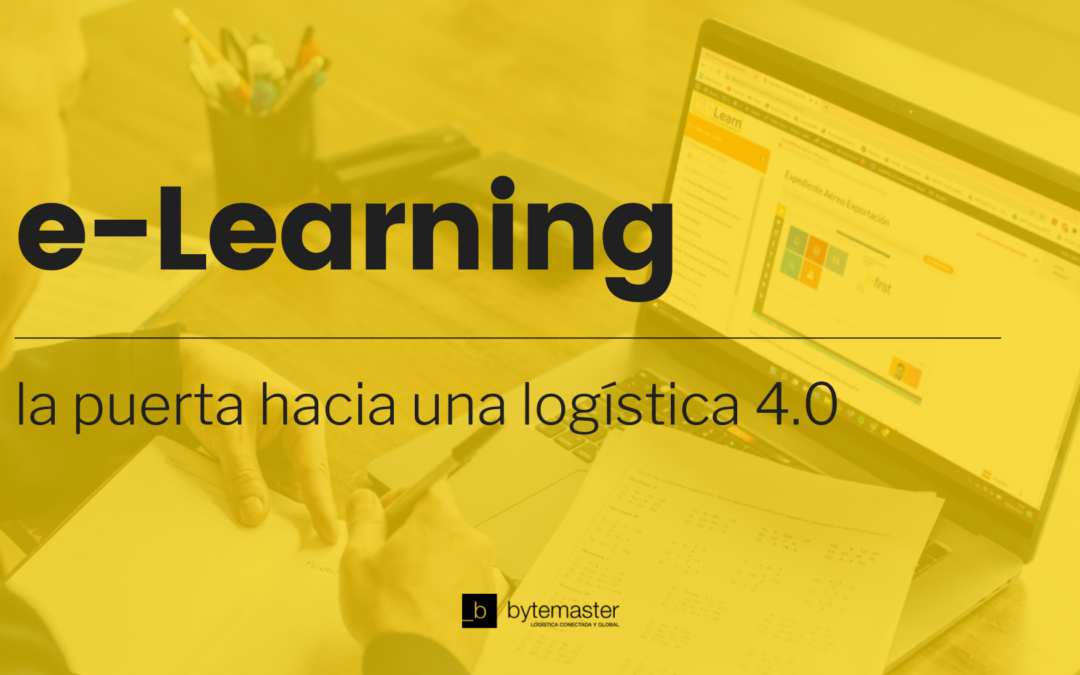As with any industry, logistics and transportation face a unique set of problems. However, their solution lies in the same pillar: the workforce. In their knowledge lies the key to facing an evolution that, in parallel, has transformed training. It is in this context that e-Learning appears.
Demand, communication, attracting young talent and training are arguably four of the industry's most pressing challenges.
The world of the supply chain is non-stop. The constant change of the logistics industry, linked to the main functional areas of hundreds of thousands of organizations, adds a new degree of complexity to the training of professionals in the sector.
Proper training translates into a better understanding of logistical nuances. This, in turn, means a competitive advantage for employing companies. Behind supply chain education, however, lie two challenges.
The first is that logistics is one of those sectors that requires both textbooks and field practice. The second is that traditional training is no longer sufficient.
The potential of e-Learning
The fast pace of the global economy requires all of us to invest in our teams as we quickly learn new skills and take on new responsibilities.
Under this premise, the sector is becoming increasingly strategic and now requires its professionals to develop new competencies as they develop their careers.
Thus, in the quest for greater efficiency and productivity, companies are turning to technology as a crucial enabler to meet organizational and individual learning needs. The goal is to deliver intelligent, relevant content that can be easily accessed anytime, anywhere via any device.
With these benefits, it is no wonder that e-Learning as an educational offering is revolutionizing corporate training.
Why e-Learning?
With e-learning, employees can take their courses at any time, set their schedule to learn at their own pace and retain more information in less time.
Thus, among the advantages of this learning system are the following:
- Time savings: this format requires 40 to 60 percent less employee time than learning the same material in a traditional classroom.
- Increased retention: E-learning increases retention rates compared to face-to-face training because learners have more control over the process. This includes the opportunity to reinforce their knowledge by being able to revisit the training as needed.
- Reduced expenses: companies save millions of euros in costs associated with travel, accommodation and meals, equipment and instructors by maximizing their employees' time.
- Supporting engagement: in addition to a clear reflection in the economic field and being a competitive advantage, corporate training through e-learning creates a more engaged workforce.
Many problems, one solution
As mentioned above, the current focus of training efforts within the logistics industry revolves around four axes.
The first is demand. Things are not slowing down in transportation and logistics. In fact, demand is increasing around the world as the 'Amazon effect' continues to expand. Inflated expectations around the delivery experience have transferred to every link in the supply chain. To keep up, operations must scale, and that requires a large and well-trained workforce.
With respect to communication, it is worth noting that this has become even more difficult as supply chains have become more complex. In this regard, e-Learning tools make it possible, for example, to assess whether the workforce has all the information they need at their fingertips to excel in their daily tasks.
Attracting talent is the third leg of a system that is already beginning to feel the effects of the lack of generational replacement. Capturing Millennial and Gen Z talent is essential, therefore, betting on training adapted to their reality and needs, such as e-Learning, is vital.
The fourth challenge is to truly deliver effective training. In an industry where only 28% of companies claim to have moved towards digitization, the lack of a digital culture and training are the biggest challenges. As the consulting firm PwCThe next few years will be critical: if companies do not start adapting their training soon, they run the risk of being left behind permanently.
bLearn: the key to logistics 4.0
Adapted to this new training philosophy, bytemaster, as a forward-looking logistics company, is not only adapting to e-Learning, but is also launching its own proposals.
In this context, it appears bLearn the e-learning platform for the logistics sector based on Bytemaster's ERP b first solution.
A pioneer in Spain, bLearn allows professionals in the sector to train and specialize in the different operations of international trade and logistics directly in the digital environment used by today's major logistics operators.

Consultant in Logistics and Supply Chain Technologies


